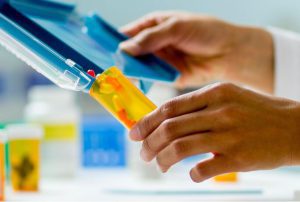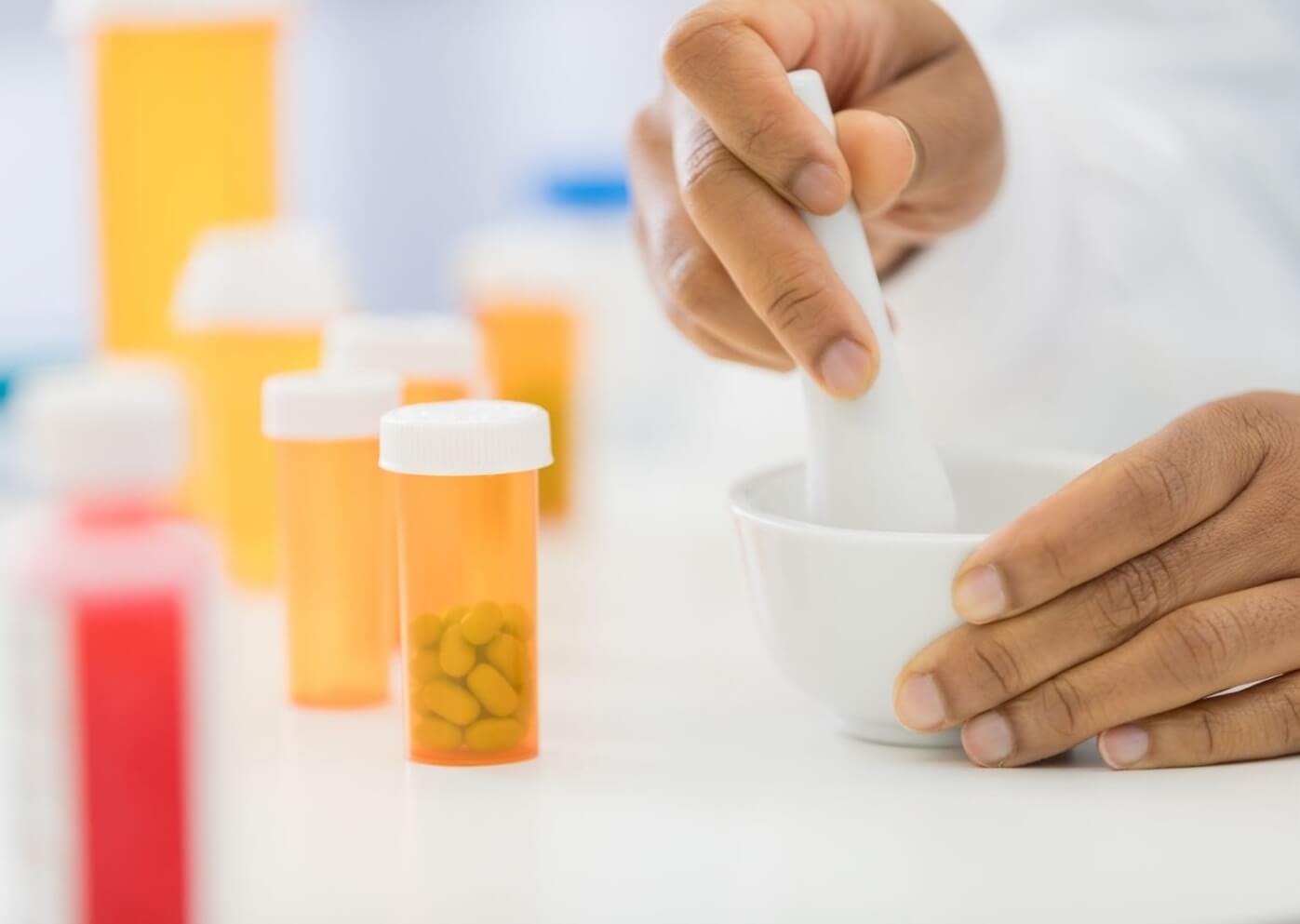To become a pharmacy technician in the UK involves completing specific education, training, and registration requirements. To become a pharmacy technician, you support pharmacists in dispensing medicines, working in a pharmacy under the supervision of a pharmacist, and performing various pharmacy operations, including customer service. They dispense prescriptions to patients and customers, manage medication stock, ensure prescriptions are delivered correctly and abide by relevant legislation. If you pay attention to detail, enjoy working in a healthcare-inspired environment, and want to help people, becoming a pharmacy technician can be a good career choice. In this guide, we’ll look at how to become a pharmacy technician in the UK, the necessary qualifications, and the skills required to be successful.
What Does a Pharmacy Technician Do?
To become a pharmacy technician, you work under the supervision of pharmacists and other healthcare professionals to ensure the daily operations of a pharmacy run smoothly. Their duties support both the clinical and administrative functions of the pharmacy by performing various tasks such as:
- Distributing Medications: To become a pharmacy technician, you help pharmacists fill prescriptions and check medications to ensure the right one is given and in the right amount. They label medications for patients and help them to take them safely.
- Compounding Medications: In some settings, the pharmacy technician compounded medications by mixing medications according to the specific formulation and prescription for customers who often needed special doses or liquid formulations.
- Managing stock and inventory: To become a pharmacy technician, you track the pharmacy’s inventory, ensuring it has enough medications and supplies for its patients. They place orders, manage deliveries and check for recalled or expired medications.
- Customer Service: In the pharmacy, technicians are the first point of contact with the patient. They process prescription requests, field questions and requests for over-the-counter medications, and answer questions about health and wellness products.
- Preparing prescriptions and documentation: To become a pharmacy technician, you prepare prescriptions and handle the paperwork that goes along with patient records, insurance claims, and confidentiality, according to the directions of a pharmacist.
- Clinical support for pharmacists: In a hospital, pharmacy technicians may work under a pharmacist and prepare medications for inpatients, administer medication to patients, and support a pharmacist in rounds or consultations.

Average Pharmacy Technician Salary in the UK
The salary of a pharmacy technician in the UK depends on experience, location of employment, and the nature of the employer. Pharmacy technicians at entry level can earn anything between £19,000 and £23,000
With experience, salaries rise, and mid-level pharmacy technicians can expect to earn between £23,000 and £28,000 per year. Those working in more specialist settings, such as hospitals or industry, or pharmacy technicians taking on more managerial roles, can earn up to £32,000 or more. Wages will also be higher in cities like London, where living costs are higher.
Key Skills for a Successful Pharmacy Technician
You should have essential technical, interpersonal and organisational skills to be a good pharmacy technician. The most important skills are:
- Attention to Detail: To become a pharmacy technician, you must be able to prepare and dispense medications precisely. Attention to detail is necessary to ensure the correct drug and dose is given to the right patient.
- Organizational Skills: Organisational skills are also important, as you must be able to manage prescriptions, stock and paperwork. Pharmacy techs should also have good multitasking abilities.
- Strong Communication Skills: To become a pharmacy technician, you regularly interact with patients, pharmacists and other healthcare professionals. They need to communicate effectively to provide information about the medication, address problems, and keep the pharmacy running smoothly.
- Teamwork: To become a pharmacy technician, you are part of a team in which the technician and pharmacist work together with other technicians and the rest of the healthcare team. Working with others and providing a safe and efficient pharmacy service is essential.
- Customer Service Skills: You know that old saying about the customer always being right? It’s particularly true in a pharmacy. To become a pharmacy technician, you are often the first people someone sees when they enter the pharmacy, so it’s important to have strong customer service skills; that means patience, being approachable, and being able to answer questions about medications or health products.
- Ability to Solve Problems: To become a pharmacy technician, you may encounter problems such as out-of-stock medications or prescription discrepancies. This technician must think clearly and be able to solve problems quickly to keep the pharmacy running smoothly.
- Terms relating to Medicine and Pharmaceuticals: To become a pharmacy technician, you must understand medical terminology, drug names and dosages, and the different formulations of medications to dispense the right drugs and keep patients’ prescriptions straight.

Steps to Become a Pharmacy Technician in the UK
Becoming a pharmacy technician in the UK involves completing specific education, training, and registration requirements. Here’s a step-by-step guide:
- Complete GCSEs or Equivalent Qualifications: To start your journey to becoming a pharmacy technician, you will need to have completed GCSEs (or equivalent qualifications), including Mathematics, English, and Science. Most training programs require at least grade 4/C or above in these subjects.
These foundational subjects are essential for understanding the technical aspects of the pharmacy role, such as working with numbers, communicating effectively, and understanding basic science related to medication. - Enroll in an Accredited Pharmacy Technician Course: The next step is to enroll in an accredited pharmacy technician training program. In the UK, you can take a Level 3 Diploma in Pharmaceutical Science combined with a BTEC National Diploma in Pharmaceutical Science or NVQ Level 3 in Pharmacy Services.
These courses are typically two years in length and combine classroom learning with practical work experience. During your training, you will learn about pharmacology, pharmacy law, dispensing medications, and health and safety procedures. - Complete a Work Placement: Alongside your course, you will need to complete a practical work placement in a pharmacy setting, such as a community pharmacy, hospital pharmacy, or within the NHS. This experience is crucial for gaining hands-on skills and learning how to work in a real-world pharmacy environment under the supervision of a qualified pharmacist.
Work placements allow you to apply your knowledge, interact with patients, and learn how to dispense medications, manage inventory, and operate within a pharmacy team. - Register with the General Pharmaceutical Council (GPhC): After completing your training and practical work experience, you must register with the General Pharmaceutical Council (GPhC) to practice legally as a pharmacy technician in the UK. The registration process includes providing evidence of your qualifications, practical training, and work experience.
You must also demonstrate that you meet the GPhC’s standards for professionalism and ethics before being officially registered. - Gain Additional Experience and Specialize (Optional): Once you are registered and have started working as a pharmacy technician, you may choose to gain further experience and pursue specialization in specific areas of pharmacy. For example, you could focus on hospital pharmacy, where you may be involved in preparing complex medications, or specialize in oncology, paediatrics, or clinical trials.
You can also pursue additional qualifications to advance your career, such as Level 4 Certificates in Medicines Management or Pharmaceutical Sciences. - Engage in Continuing Professional Development (CPD): To become a pharmacy technician, it’s essential to stay updated with the latest developments in pharmacy practice, medicines, and healthcare regulations. Pharmacy technicians must complete continuing professional development (CPD) throughout their careers.
CPD can involve attending workshops, completing online courses, or participating in professional development activities to maintain registration and improve skills.

Tips for Aspiring Pharmacy Technicians
- Develop your work ethic: Work in the pharmacy is quick-paced, and you’ll need to be able to manage your time, stay organised, and finish tasks without rushing and compromising on accuracy.
- Get Experience Earlier: If possible, get work experience in a pharmacy while still studying. This will allow you to gain insight into the pharmacy world and help you better understand it. In your application, you could write: ‘Through working as a pharmacy assistant, I discovered my passion for the pharmacy profession. This motivated me to pursue a degree in pharmacy.’
- Get on Good Terms With Pharmacists: Pharmacists are the primary supervisors of technicians, so it’s important to be on good terms with them. Suppose you like working as a pharmacy technician. In that case, you must embrace the opportunity to learn and grow as a pharmacist.
- Keep Up with New Medications and Protocols: The pharmacy field constantly changes, with new medications, treatments, and technologies being introduced frequently. Keep up with the latest developments in pharmacy to provide the best patient care.
Frequently Asked Questions
Why Should You Become a Pharmacy Technician?
The pharmacy technician job is a great position for those interested in the healthcare field who relish interaction with the public and wish to make a difference in patient care. Pharmacy technicians enjoy rich, stable jobs in retail pharmacies, hospitals, and health organisations, and there is no shortage of opportunities available.
Is a Career as a Pharmacy Technician Right for You?
You might be a good fit for a pharmacy technician job if you love detail, enjoy good communication, and are interested in working in a healthcare setting. If you have an affinity for a front-of-house position that blends science with customer service, and you’re looking to take on a hands-on, patient-facing role, then becoming a pharmacy technician could be for you.
What Are the Salary Prospects for Pharmacy Technicians in the UK?
Entry-level technicians can earn around £19,000 to £23,000 a year. In comparison, the salaries of more experienced pharmacy technicians range between £23,000 and £28,000. Technicians working in more specialist settings, such as hospital pharmacies, or taking on managerial roles can earn up to £32,000 a year.
What Qualifications Are Needed to Become a Pharmacy Technician?
To work as a pharmacy technician, you must complete a Level 3 Diploma in Pharmaceutical Science and either a BTEC National Diploma in Pharmaceutical Science or an NVQ Level 3 in Pharmacy Services, which qualifies you to do the job as you learn all about medications, law, and other aspects of your profession. You will also need to do a work placement in a pharmacy before you can practise as a pharmacy technician. Having completed the education and training, you must register with the General Pharmaceutical Council (GPhC), the professional body for pharmacy in the UK.
Do You Need Work Experience to Start a Career in Pharmacy Technology?
Yes, training for a qualification as a pharmacy technician must include practical work experience. All diploma and NVQ qualifications include work experience in a pharmacy setting, where you’ll work alongside a fully qualified pharmacist. Your work experience will help you learn what a pharmacy technician’s day-to-day work is like, develop your technical skills, and hone your customer service skills.
What Is the Career Outlook for Pharmacy Technicians?
With the increased pharmacy profile as a healthcare setting, demand for pharmacy technicians in the UK is strong. There are opportunities in community pharmacies, hospitals, and private healthcare settings, and a career in pharmacy can be stable with the potential for progression. With changes in healthcare delivery, there is expected to be increased demand for pharmacy technicians trained in medicines management and clinical support.
What Are the Career Progression Options for Pharmacy Technicians?
Entry-level pharmacy technicians can become senior technicians, pharmacy supervisors, or pharmacy managers in pharmacies or hospitals. With additional study, advanced practice opportunities include specialisation in oncology, paediatrics, or clinical trials, which might also require additional certification. Work in training and education can include teaching pharmacy courses or training new technicians. Pharmacy technicians who return to school can become pharmacists.
What Are the Exit Options and Opportunities Beyond Pharmacy Technology?
The skills and work experience gained as a pharmacy technician could be easily applied to several other careers in the healthcare or pharmaceutical industries. A pharmacy technician might transition to pharmaceutical sales, regulatory affairs or healthcare administration. Some could decide to return to school and acquire more education and training to become a pharmacist, whose scope of practice and earning potential is much higher. Others may not want to pursue another health-related career but could apply the management and organisational skills they developed in this role to an operations manager or supply chain manager position within the healthcare setting.


